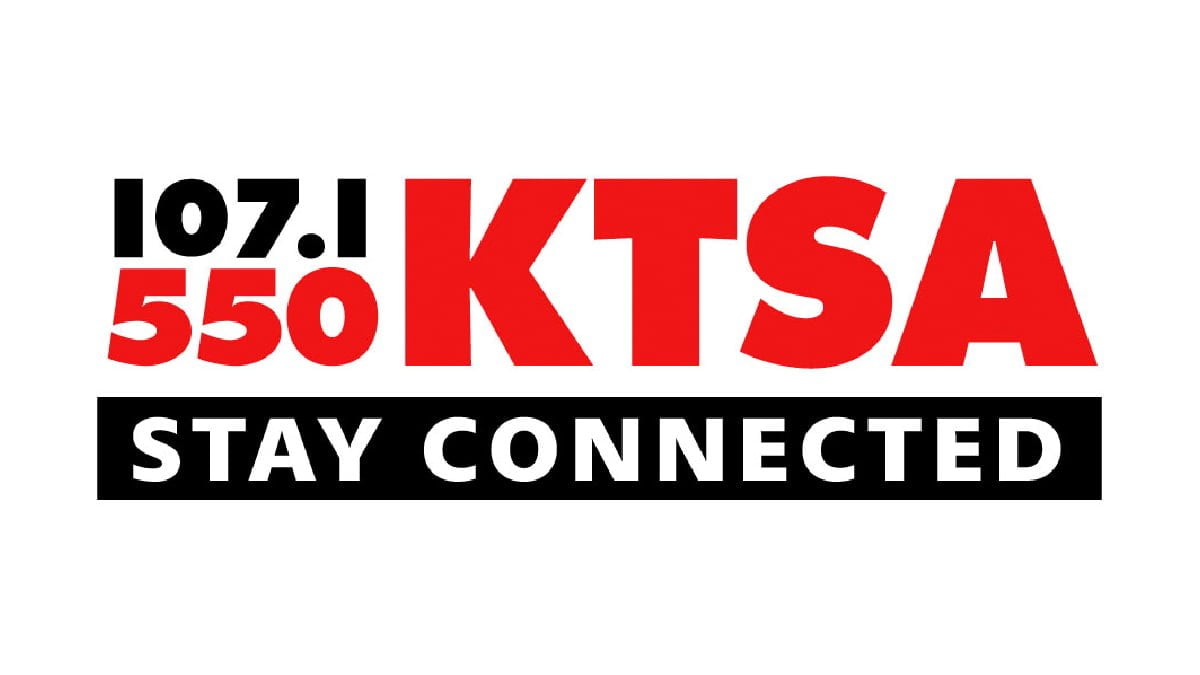Growing up in San Antonio, Greg Martin discovered his passion for radio at a young age. Interning at KTSA, a nearby station, little did he know that he would eventually find his way back to the place where his love for radio first ignited. Starting in the Top 40 format, Martin was drawn to news/talk radio. One program that caught his attention was Rush Limbaugh’s show, which seamlessly blended intriguing observations with entertaining content.
In San Antonio, the radio industry thrives with a remarkable array of professional broadcasters, committed advertisers, and a political environment that empowers KTSA to maintain its consistent position as the highest-earning station.
Martin’s incredible journey has led him to a successful Hall of Fame career, built on his unwavering trust in his talented hosts. They deliver compelling content that effortlessly combines entertainment with the latest current events, providing an engaging radio experience for their audience.
Recently, Martin sat down with Barrett News Media to discuss various topics. He shared his thoughts on the news/talk format after Rush Limbaugh’s passing and his coaching and support methods for radio personalities. Martin also shared ideas about being inducted into the San Antonio Radio Hall of Fame. Furthermore, he highlighted an ongoing crisis in the radio industry that still needs to be addressed.
Ryan Hedrick: As the program director of KTSA in San Antonio, how would you describe the current state of the city’s news/talk radio scene locally?
Greg Martin: Our model has never been built on ratings. We’re a local, direct conservative news/talk station in San Antonio. We only get a few national dollars. WOAI has been dominant for years. Rush [Limbaugh] ‘s unfortunate passing leveled the playing field in the market. We took the Markley, Van Camp, and Robbins Show, which we generate from San Antonio.
Our local talent has been here longer than I have. Our morning guy grew up here at the radio station, and his dad was on the air for 50 years. These are respected and trusted voices in this market. We have more local hours than anybody across the street, so we are fortunate to have that in our favor.
We are the top billing station in the market, either one of two most months; KTSA is a money-making machine. We have a good thing here. This live and local model is built on our talent and their relationship with the audience and our great clients. We move product, and that’s how we know the station works.
RH: How did the news/talk format change after Rush Limbaugh’s passing?
GM: When he passed, we immediately saw this man’s impact on the format he invented. He was the original. Many people have come after him and tried to model themselves like Rush and carve their paths. We’ve had an opportunity to see who rises to the top when that seat is vacant.
We have Dan Bongino, who has stepped in, Dana Loesch is a great talent, and Clay Travis and Buck Sexton have done well. But I am a big fan of Markley, Van Camp, and Robbins because the news is so heavy, and you need to be able to laugh. They’re good at doing that. They are talking about the world of the day, but they find the absurdity of most of it and make people laugh.
RH: Could you share your philosophy on coaching talent and developing successful radio personalities at KTSA?
GM: I’ve been fortunate. The guys doing talk radio at this station have been doing it longer than I’ve been at the format. I’m a Top 40 guy, I came from the Top 40 days, and that’s a majority of my career, and then I moved into operations. These guys are pros. As far as coaching them, my philosophy in working with a great consultant like David Hall is not to beat these guys up.
My guys are expressive types, and you never want to squash that. For every one thing I like a correction on, there are three or four more things that I want more of. It’s a craft, a talent many people don’t have. I’ve got a great relationship with these guys; we’ve been working together for twenty-plus years. There are a lot of hallway huddles, and some of my guys are still working remotely. I’m here as a resource and their coach.
RH: Congratulations on being selected to the San Antonio Radio Hall of Fame in 2022! How did it feel to receive this honor, and what does it mean to you personally and professionally?
GM: When they first brought the award to me, my first reaction was, ‘I’m only 50,’ maybe they’re running out of people to nominate. Honestly, I’m genuinely humbled by it. I started at KTSA in 7th grade and went to Krueger Middle School, right down the street. The program director then let me in to answer phones and do whatever I could to learn something. All these people that I am inducted with, I grew up admiring. They were in their prime when my career was just getting started. All these guys in San Antonio have had great jobs, and it’s nice to be counted among them.
RH: What do you think the future holds for AM radio in an era dominated by digital media and streaming platforms? How does KTSA adapt to the changing landscape?
GM: I grew up listening to and working on AM radio. I run an AM station now, but in the future will be streaming. I’m not knocking AM, but it’s an old technology. We need streaming that works well. I have yet to find one streaming station that executes flawlessly, and I think we have an issue there. The other crisis that nobody discusses in the industry is the engineering crisis. There aren’t engineers out there to work on these AM stations anymore. They are few and far between.
We must clean up the technology and streaming platforms and make the listener experience seamless, just like it is over the air because that’s where the future will be.
RH: Could you elaborate further on your perspectives regarding the engineering dilemma surrounding AM Radio?
GM: Those guys who work on that technology are not coming up. The interest is not there, and it’s sad to say. Society does that as technology evolves. I talked to my kids, my daughter is 21, and my son is 19, and my son said the other day that the only time I hear your station is when the brief time my car is connected to Apple Car Play.
My daughter, we took a trip to South Padre Island, and I was listening to KTSA, and she said, ‘Your station still has a connection down here?’ It was funny that she thought of it as a connection, not a transmission. There’s a lack of interest from the younger folks.
RH: How do you see the role of talk radio evolving in the digital age? What steps has KTSA taken to stay relevant and engage with a younger audience?
GM: It’s something you do over time; I don’t think you put your product on an FM and believe they will listen. You must have good content. The world is so heavy in politics, and cutting through the noise is complex. We are a South Texas conservative news/talk station, and we stay true to that, and people find us. You put a guy like Sean Rima on, who is like everybody’s cool uncle, and people want to hang out with him. I think it’s about content and what you put out there, and you can’t always be so freaking heavy. It would be best to find some balance, or you will burn yourself out and drive all your listeners away.
RH: Which news or talk radio personalities do you particularly enjoy listening to, and what makes them stand out or unique?
GM: KTSA afternoon host Jack Riccardi has an incredible ability to tell a story, unpack a story, explain it, and then give his unique perspective. He doesn’t have to take one phone call; you’re just sucked in. He can shift from talking about Biden and Trump indictments, and suddenly, he’s talking about his favorite restaurant that he had lunch at today because he’s doing an endorsement, and you didn’t even notice. All our guys here are solid, and I like Markley, Van Camp, and Robbins. To have guys from three generations who have the chemistry they have, the fun they have, the show moves, and to me, it’s a must-listen-to every day.
RH: KTSA Radio has a significant impact in San Antonio. Could you elaborate on what makes KTSA an influential voice in the community?
GM: It’s the trust that our hosts have built over the decades. Trey Ware has been in the market for a long time. Elizabeth Ruiz was on the air in our news department for 30-40 years before she signed off. We pair Trey [Ware] with Sean Rima, a completely different off-the-wall, and fun personality. Trey is the quarterback of the show, and Sean is the clown.
Our local involvement in the community is excellent. All these guys have charities that we support. We do an annual event with Jack Riccardi over Christmas called “Wrappin’ with Jack,” where we collect toys and items for a local non-profit agency. We also do a Trey Ware food drive each year.
Pre-pandemic, we hosted town halls and mayoral debates in our Alamo Lounge. We host our annual “Raul Jimenez Thanksgiving Radiothon” out of there, raising money for the enormous Thanksgiving dinner in the United States, which happens downtown. We’ve been here forever, and we’ve stayed relevant, and we keep chipping away. We were never in this to win a rating battle, but when the ratings come, we are honored by that.
RH: What key factors do you consider when selecting new talent to join the KTSA team? Are there any specific qualities or skills you are looking for?
GM: I’m not looking for anybody that’s just passing through looking to put KTSA on their resume. If you want to be here, it’s an investment in your future, and you can make a lot of money here, but it will take some time to build up your brand in this market.
You are always looking for someone with a unique point of view. Storytelling is huge. I’m sorry, but I won’t be able to defend your position. We’ve always backed our talent in this building. I’ve never had to say you can’t talk about this or You can’t go this direction. I’m not looking for anyone right now. I like the staff that I’ve got.
RH: As someone deeply involved in the radio industry for many years, what advice would you give aspiring radio professionals looking to make a news/talk radio career?
GM: It’s more than the AM/FM; understand it all, get into it all. Content is king. Surround yourself with people you admire and respect on whatever platform it is. I remember coming to KTSA when I was in sixth grade and watching Ricci Ware doing a talk show and thinking to myself, how cool that was. I surrounded myself with people doing the things I wanted to do. I was knocking on doors and being persistent. I think you must be persistent.









